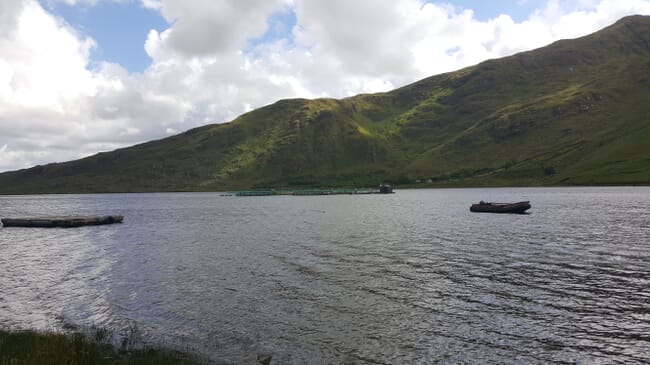The Business of Seafood 2018 report, soon to be published by Bord Iascaigh Mhara (BIM), shows that salmon production - which accounts for more than 67 percent of the overall value of the Irish aquaculture industry - slumped by 39 percent, to 12,200 tonnes, last year.
“We are now asking the Department how many finfish licences have been issued in the last five years and how many applications are waiting in the system? IFA is aware of applications which were submitted in 2005 which still haven’t been processed 14 years later. This ongoing lack of progress with new licences as well as renewals rests with the Department. It also raises serious questions about the effectiveness of BIM,” said Molloy.

© Ecoaqua
“Aquaculture is a significant and very valuable source of employment in rural, coastal communities where alternative sources of employment are limited,” he added.
Almost two years ago, the Minister of Agriculture, Food and the Marine published the eagerly anticipated report of the Independent Aquaculture Licensing Review Group, which outlined 30 recommendations “to improve a dysfunctional regulatory system, but he has implemented few if any, of the actions outlined within,” Molloy continued.
IFA have noted that Ireland’s failure to meet the targets has had a critical impact on the aquaculture sector.
The representative body notes that: “The opportunity to create and sustain 1,300 jobs has been wasted. According to BIM’s figures, Irish aquaculture is now 20 percent below 2010 volumes and based on Government targets of 7.8 percent yearly growth, this means the industry is a staggering 82 percent below stated Government policy targets”.
Mulloy added that IFA is seeking to establish clearly just what the Department intends doing about the missed opportunity and subsequent decline in Irish fish production.
“We’ve seen report after report, review followed by review and all the while, the industry is contracting. The time for talking is over, this sector needs real action,” he said.


